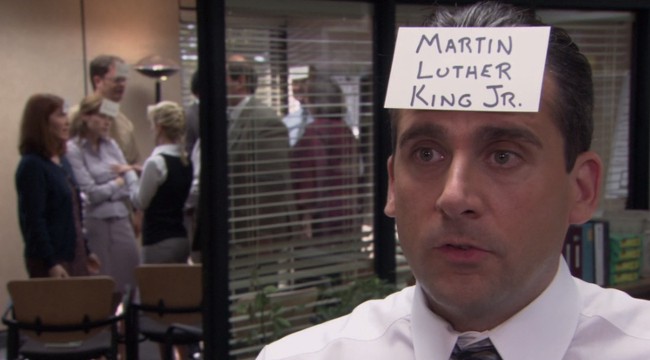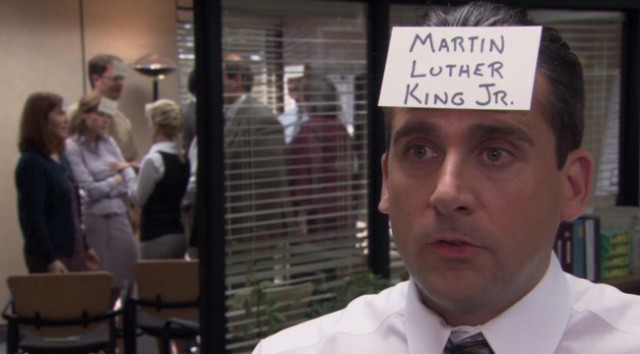Uproxx has a great oral history of The Office’s “Diversity Day” episode, the one where Michael…


BAUMGARTNER: It was certainly an inappropriate thing for someone to do in the workplace, but the message behind that was the same message that was behind a lot of the episode. His naiveté got him in trouble, but part of what he was doing, in an age where you were so overloaded on the PC side, and nobody was able to say anything, was forcing people to examine from a naive perspective, why isn’t this something we can talk about? Obviously a work place setting is what makes everyone uncomfortable, but I think just bringing up the issue of race and not hiding is why I’m proud of it.
KINSEY: Whenever I read our scripts, there were so many that we did that were part of the cringe humor. I think Archie Bunker did that on All in the Family, which is a super old call-back because I’m an old lady [laughs]. But one of your lead characters is inappropriate, you get to call them out on their crap. Say, “No, that’s wrong, dude!” And I feel like we did that throughout all those seasons. I have such fond feelings for this episode and obviously for this show.
Uproxx has a great oral history of The Office’s “Diversity Day” episode, the one where Michael reenacts a Chris Rock joke, which premiered ten years ago this week. Like the highbrow self-important ~*~*internet critic~*~* that I am, I always bought in to the popular opinion that The Office took a long time to get its footing, but this was their second episode ever, and arguably one of their best: the episode reinforces the idea that even well-intended allyship can still go horribly awry, and that people — -particularly heterosexual white men in positions of power — -shouldn’t be praised for just trying. (I watched this episode a lot when writing an essay on the politics of racial humor; all “research” should have Steve Carrell in it, in my opinion.)
I’ve always loved this episode because it’s just such a good example of how to deal with racial humor: there are tons of racist and stereotypical jokes within it, but those tropes are not the joke — -Michael Scott’s absurd belief that adopting them and having others guess one’s identity accordingly is the way towards racial harmony is. It’s a refreshing upending of norms: instead of singularly relying on hoary stereotypes for humor (I’m looking at you, Unbreakable Kimmy Schmidt), BJ Novak, who wrote the episode (with Larry Wilmore as a consultant!) throws those stereotypes into our faces. By inserting them into farcical scenario, we can then see that the stereotypes themselves are farcical, and then we can eschew them, all while laughing and amping up hope that Jim and Pam will end up together. Let’s just take 30 and rewatch it real quick?